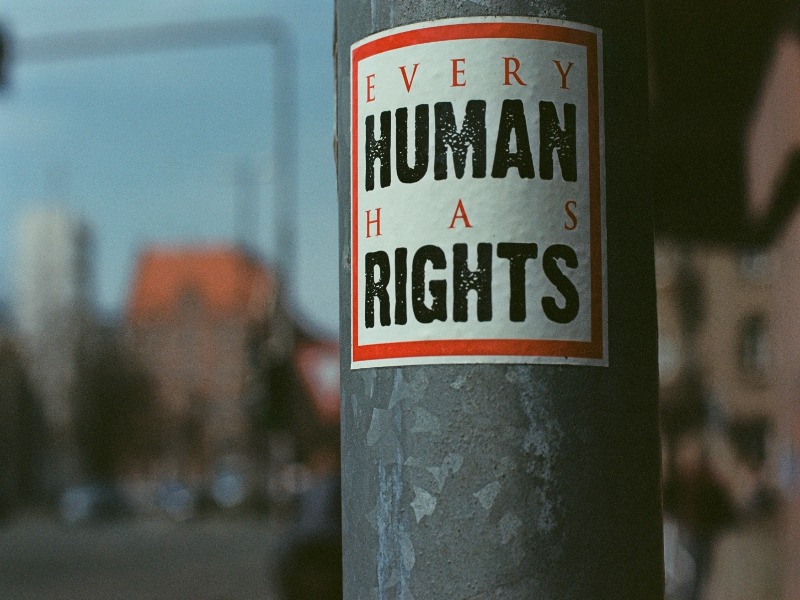The URC has joined 265 ecumenical partners, charities, and civil society bodies in urging the House of Lords to block the Rwanda Bill.
In a joint civil society statement, published ahead of a second reading on 29 January, the organisations call the bill a “constitutionally extraordinary and deeply harmful piece of legislation” that undermines the principle that human rights are universal, and reneges on international commitments.
The statement, coordinated by The Save our HRA (Human Rights Act) Coalition, is as follows:
Joint civil society statement on the Rwanda Bill for Second Reading in the House of Lords
The Safety of Rwanda (Asylum and Immigration) Bill is a constitutionally extraordinary and deeply harmful piece of legislation. It threatens the universality of human rights and is likely in breach of international law, striking a serious blow to the UK’s commitment to the rule of law. It was not a government manifesto commitment – on the contrary, it will hinder the UK’s ability to “continue to grant asylum and support to refugees fleeing persecution”. As a coalition of 265 organisations working in and across the UK, we call on Peers to reject the Bill at Second Reading.
The Rwanda Bill undermines the principle that human rights are universal – that they apply to all of us, regardless of where we are from. Going even further than recent government legislation such as the Illegal Migration Act (IMA), the Rwanda Bill disapplies key aspects of our Human Rights Act (HRA) which include basic, minimum standards that exist to protect us all. This will create a two-tiered system of human rights protection, where adults and children seeking safety who are threatened with removal to Rwanda will not have the full protections of the HRA to enforce their rights in domestic courts.
The Rwanda Bill is an attack on the constitutional role of the judiciary and the rule of law. The Bill legislates something that has been authoritatively found to be false by the Supreme Court and requires it to be treated as true in perpetuity. Even if a court heard overwhelming evidence that Rwanda was unsafe, it would be required to ignore the facts in front of them to “conclusively” treat Rwanda as a safe country. If the government is so confident about the legality of the new Rwanda treaty, it should not fear independent oversight by domestic courts. If Parliament validates legislating legal fictions in this way, it would set a dangerous precedent for future governments – a threat to rights protections for all. Moreover, the Bill severely restricts grounds for resisting government decisions and domestic court remedies. Limiting access to justice in this way is an erosion of the principle that we are all equal before the law.
The Bill puts the UK on a direct collision course with the European Court of Human Rights (ECHR). Its cover contains an extraordinary statement – that the government cannot say that it complies with the UK’s obligations under the European Convention on Human Rights (ECHR). In particular, the Bill expands powers given to ministers in the IMA to ignore interim measures of the ECHR and that Act’s prohibition on UK courts having regard to an interim measure when considering any application/appeal relating to removal to Rwanda. Interim measures are a life-saving tool that allow the ECHR in exceptional circumstances to place a temporary stop on an action where there is an imminent risk of irreparable harm, to allow time for a full judgment to take place. They are binding on the government under international law. Giving a minister legislative validation in ignoring them is a deeply concerning green light to the breaking of international law and erodes the UK’s commitment to the Convention. The government itself admits in its ECHR memorandum that using the power would likely breach the ECHR.
The Bill also reneges on other international commitments. In particular, it risks violating the principle of non-refoulement, which the Supreme Court found has been given effect by multiple international treaties to which the UK is a party (including the Refugee Convention and UN Convention Against Torture). The Rwanda scheme is an attempt by the UK government to shirk its obligations to consider asylum claims and support those granted protection as part of the international refugee protection system. Even more alarmingly, the Bill states that the government and courts should treat Rwanda as a safe country, regardless of “any interpretation of international law by the court or tribunal”. This extreme provision will damage the UK’s international reputation and ability to hold other states to account for human rights abuses.
The Rwanda Bill will breach the Belfast/Good Friday Peace Agreement (B/GFA) and Article 2 of the Windsor Framework. The B/GFA commits the UK government to “complete incorporation into Northern Ireland law of the ECHR, with direct access to the courts, and remedies for breach of the Convention, including power for the courts to overrule Assembly legislation on grounds of inconsistency.” These safeguards, as well as the government’s Windsor Framework commitment to “no diminution of rights in Northern Ireland”, will be violated by proposals in the Bill which directly restrict domestic access to the courts, remove remedies for breaches of the Convention, and reduce the rights of refugees below the standards set by the ECHR and other relevant international law.
Either we all have human rights, or none of us do. The government must not be allowed to pick and choose when our fundamental rights apply, nor to undermine the ways that we can hold it to account.
Image: Markus Spiske/Unsplash.

